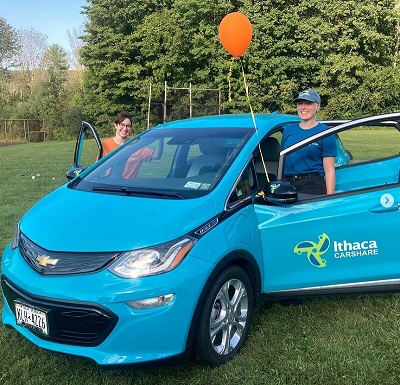
ITHACA, NY – Ithaca Carshare will suspend operations beginning May 19 due to an inability as a nonprofit organization to find auto insurance coverage.
In a statement on the organization’s website, director Liz Field said the organization had been looking for auto insurance for months, but had found no private or commercial insurance company willing to cover the program.
Ithaca Carshare is a non-profit, membership-based service that provides 24-hour vehicle access on an hourly basis. Members can reserve a time slot with the service to use a vehicle that they unlock with a personal access card. They drive where they need to and return the car to where they picked it up, locking it with their card. Members pay an annual or monthly fee as well as hourly and mileage rates when using a car.
The 15-year-old organization informed its more than 1,500 members on May 1 that operations would be halted on May 19 due to the insurance issue.
Field says Ithaca Carshare has found a Vermont-based risk retention group (RRG) willing to provide coverage for the program. However, state insurance regulators prohibit RRGs from carrying auto insurance unless they are domiciled in the state.
“This issue is unique to our state because federal law explicitly allows RRGs domiciled in one state to purchase auto insurance in other states,” Field wrote. “It is more than unfortunate that this state regulation prohibits us from taking out car insurance and therefore prevents us from continuing to provide this essential service. We’ve heard from many elderly and disabled members who rely on Ithaca Carshare to pick up prescriptions, get to medical appointments, or run regular errands at times or places where public buses aren’t running.
The insurance issue is also preventing Ithaca Carshare from working on its goals for the year, including electrifying its fleet using grants from the New York State Energy Research and Development Authority, expanding its Easy Access for low-income people and collaboration with the city and private companies. to increase electric vehicle charging opportunities across the city, Field said.
“Our small, community-focused nonprofit service complies with state climate law, as well as government. [Kathy] Hochul’s priorities are to reduce emissions and promote equity in transportation, so it has been disheartening and disappointing to come up against such a barrier to innovation,” Field said.